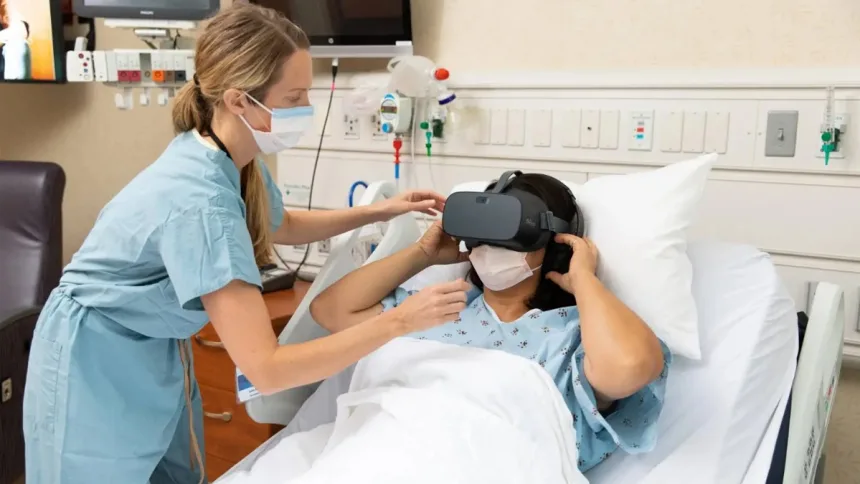February 2025- Heart surgery is a serious and invasive medical procedure, and that can be intimidating for a patient. A new study published in Mayo Clinic Proceedings suggests that virtual reality (VR) can be an effective tool to reduce preoperative anxiety in older patients undergoing their first open-heart surgery. While much of the research to date using VR involved younger patient populations, these research findings suggest that immersive VR was effective and well tolerated in older patients. These reductions in anxiety are particularly significant given the known link between preoperative anxiety and negative postoperative outcomes, including increased pain, reduced activity and higher medication use.
“This research represents a step forward in improving the patient experience and potentially using this approach to optimize postoperative recovery,” says Jordan Miller, Ph.D., a cardiovascular disease researcher at Mayo Clinic and senior author of the study.
Joseph Dearani, M.D., and John Stulak, M.D., both cardiac surgeons at Mayo Clinic involved with the study, emphasize the importance of emotional state before and after cardiac surgery. “We currently offer music and massage therapy after cardiac surgery because we know what a negative impact high anxiety has on recovery from surgery. Our team is now exploring broader implementation of VR — which can be used at any time and place, inside or outside the hospital — throughout the surgical episode to further evaluate its impact on clinical outcomes.”
Also Read : American Hospital Dubai, Mayo Clinic to Establish First M.D. School in Dubai
Unlike traditional anti-anxiety medications, which can have drawbacks such as increased difficulty placing the tube that helps a patient breathe during surgery and a longer time to remove the tube after surgery, Virtual Reality offers a nonpharmacological alternative. The study also highlights the potential of VR as a flexible tool, with the tablet-based option providing a viable alternative for patients susceptible to VR-induced motion sickness.
The research included 100 participants who were scheduled for open-heart surgery. Each patient wore a monitor to record vital signs and completed a standardized, clinically validated anxiety test before and after the VR intervention on the day of surgery. The test asked them to rate their current state with 20 questions related to feelings ranging from calm to upset. Participants rated each feeling on a scale of 1 to 4, with 1 being “not at all” and 4 being “very much.”
Half of the participants were assigned to a VR tablet and the other half to immersive VR goggles while they waited in the holding area prior to surgery. The VR provided a 10-minute nature experience with guided breathing as they viewed trees and a waterfront that changed through four seasons. The tablet played a video of the content seen by patients in VR, while people who used the immersive VR headset were able to look all around and identify environmental features, which helped them advance through the scene. Both interventions reduced the pulse rate of participants, but they did not affect respiration rate or oxygen levels.
Overall anxiety scores decreased an average of 2 points with the tablet treatment and 2.9 points with the VR goggles. Additionally, the researchers note that the scores improved considerably in up to seven of the anxiety-focused questions with the tablet and VR goggles. Several of those responses specifically represent a more positive outlook change from their previously negative feelings — a finding that has the researchers feeling optimistic about the abilities of VR to make surgery less stressful for patients.



















